Tag: News & Articles
Stanislavs Šeiko visits Community Policing Department of Salzburg and Master Program Social Inno-vation, Salzburg University of Applied Sciences (FHS)
On Tuesday 21 May 2024 the team of Salzburg University of Applied Sciences (FHS) had the pleasure to welcome the IcARUS colleague Stanislavs Šeiko, Head of Strategic Planning of Riga Municipal Police. He is responsible for the Riga police contributions of IcARUS and the elaboration of the innovative intervention “Par drošu Rīgu” (For safe Riga).
During the morning Stan Šeiko and Heiko Berner from FHS visited “the other Salzburg”: several social service providers which are active in one of the less wealthy parts of the city.
Later the same day Stan and Heiko had the opportunity to exchange with the community policing department of Salzburg “Gemeinsam.Sicher”. The colleagues from the municipal police – namely Christoph Kraler-Bergmann – invited them to visit their head quarter and presented the concept of community policing in Salzburg. They were quite interested in the Riga situation and the answer that the intervention “Par drošu Rīgu” (For safe Riga), elaborated in IcARUS, offers.
Finally, Stan presented the IcARUS tool to the students and professors of the master program “Social Innovation” of Salzburg University of Applied Sciences – a contribution that was highly appreciated from the Salzburg team.
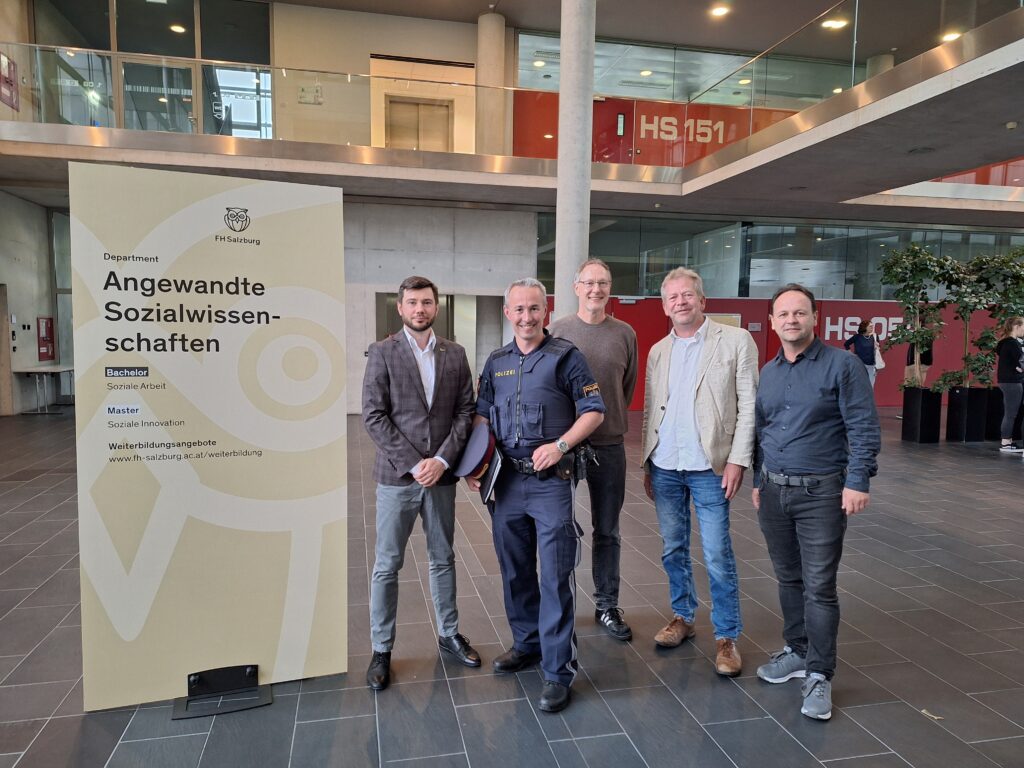
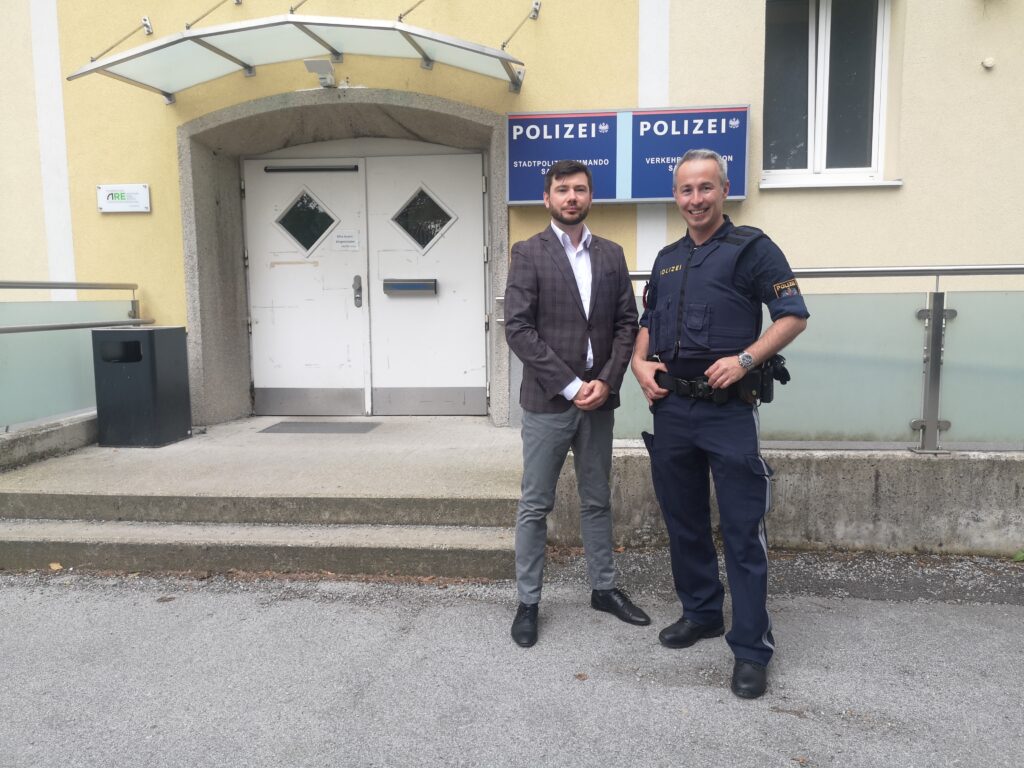

43 European municipal police officers gathered in Nice for a European municipal police academy (PACTESUR2)
From May 13 to 15, the City of Nice welcomed 43 police officers and elected officials from 15 European cities (Madrid, Turin, Liège, Vilnius, Xabia, Riga, Gdansk, Tallinn, Bologna, Bratislava, Lisbon, Kordelio-Evosmos , Budapest, Brussels and Nice) to launch the first of the PACTESUR2 project police academies.
The opportunity for a rich sharing of know-how, numerous exchanges of good practices, but also to present them with innovative tools serving the urban security of the people of Nice.
The police officers present were also able to benefit from training in the Six C protocol of psychological first aid. This tool makes it possible to reduce the risk of developing post-traumatic syndrome.
At the end of these three days, the 15 delegations received a medal from the hands of Christian Estrosi who declared:
“On the eve of important deadlines, the best way to defend Europe is to do so with very concrete cooperation projects, women and men who work together, who move things forward, so that our fellow citizens can live in security. I therefore hope that these academies will be perpetuated and extended to other cities, and that is why a few weeks ago, I proposed the creation of a European network of municipal police within the European Forum for urban security. This network will aim to continue what we started as part of Pactesur 1, but it will also aim to unite us so that we can bring a new voice to Brussels. We will thus be able to contribute to changing certain legislation to give new prerogatives to municipal police, particularly in France. It is through this type of thing that we will move Europe forward. »
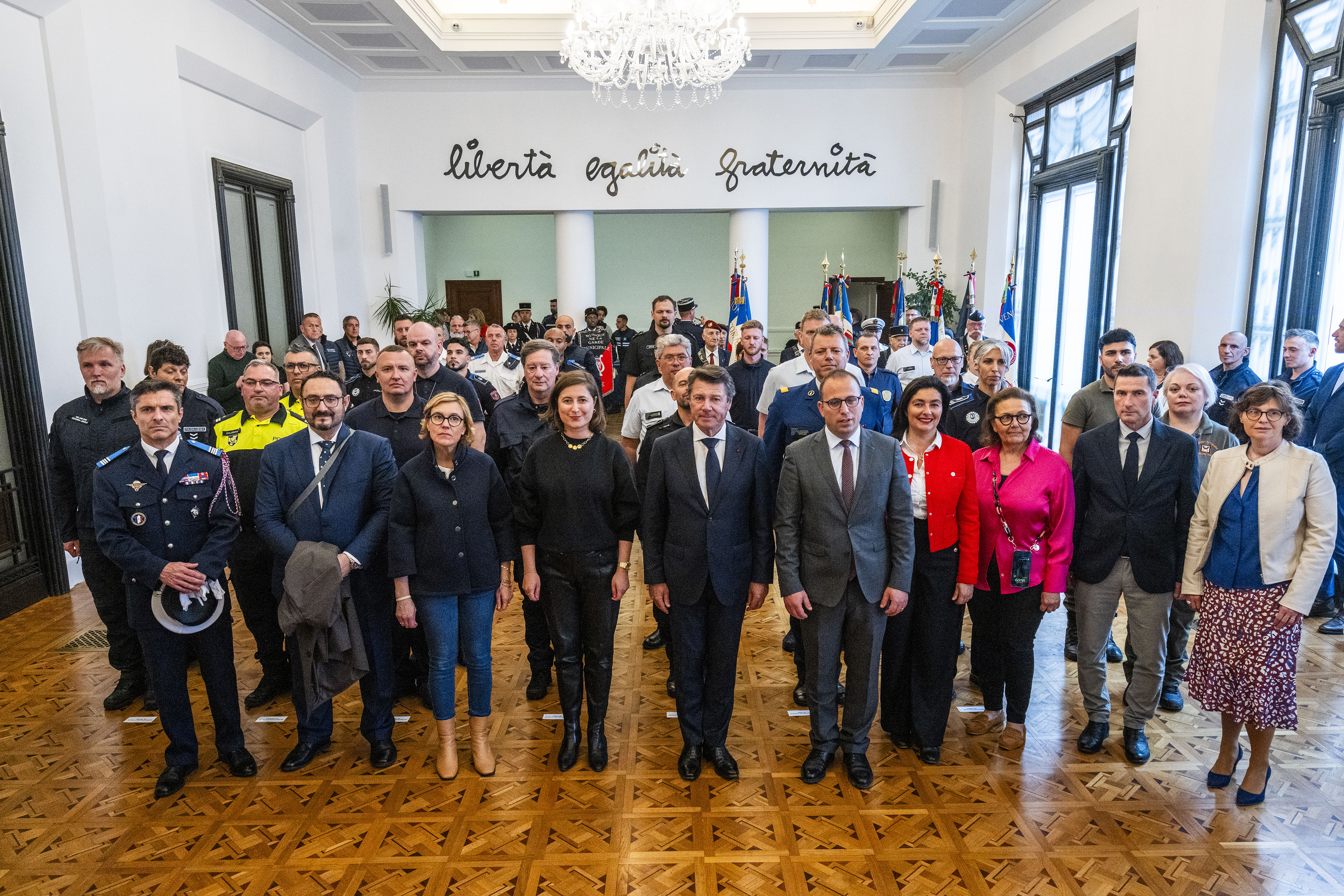

IcARUS methodology in Lamballe-Armor
On 6 May, the municipality of Lamballe-Armor organised an afternoon to work with local stakeholders on urban safety projects for the town. We were lucky enough to be invited to share our experience and the IcARUS methodology.
Over the past few months, the French Forum for Urban Security and the town of Lamballe-Armor have been conducting a participatory study of the town centre to identify and qualify the issues relating to urban safety and public tranquillity in the city. As a result of this study, recommendations were drawn up jointly with the partners, and the municipality wished to continue to involve local stakeholders in imagining how they could be implemented.
School principals, hospital directors, local policemen, elected representatives, representatives of associations and city departments – in other words, over 30 local players – got together to imagine local experiments!
We drew on the experience and lessons learned from IcARUS to design the workshop. We were able to share the approach and adapt the methodology to the needs of the municipality of Lamballe-Armor.
After an introduction by the Mayor and a summary presentation of the results of the study, the participants had time to appropriate and draw inspiration from the ideas for action. They then worked in groups on prototypes, identifying ways of testing the proposals before rolling them out on a large scale.
A great success in terms of local mobilisation, which will feed into the implementation of the city’s projects!
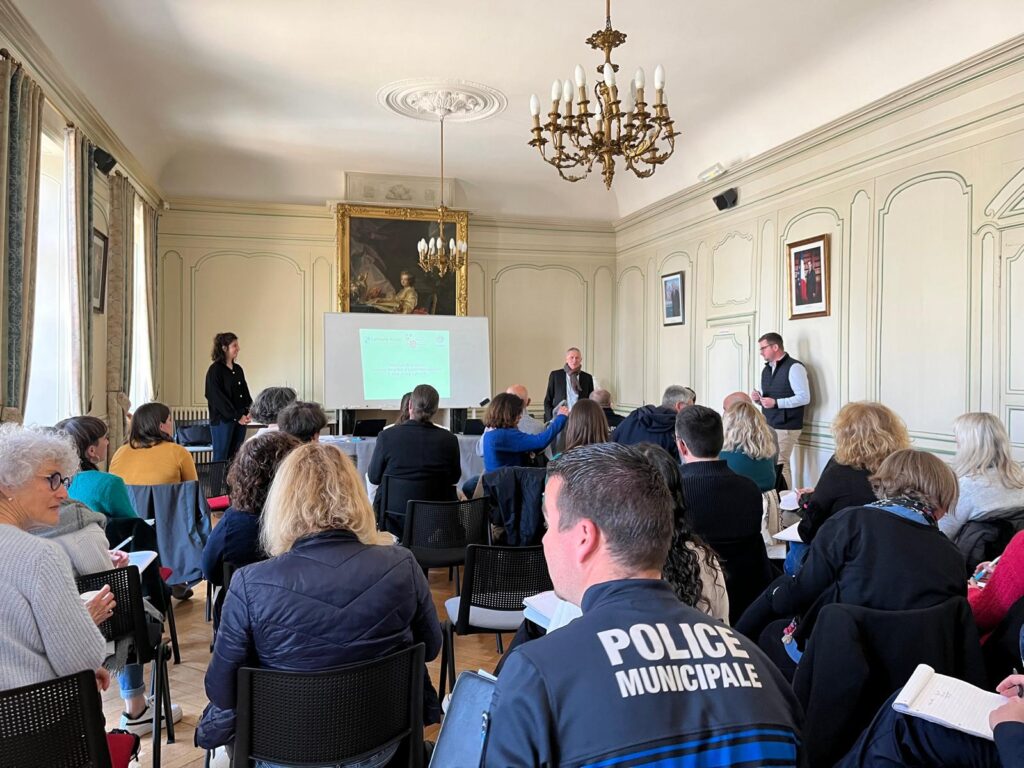
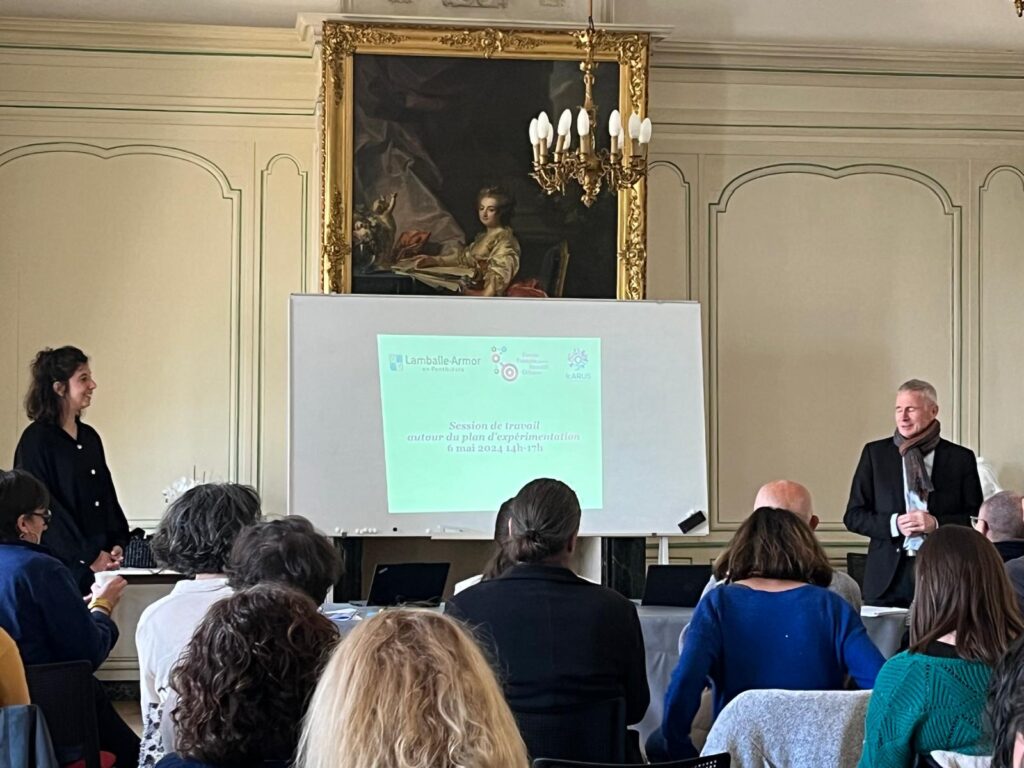
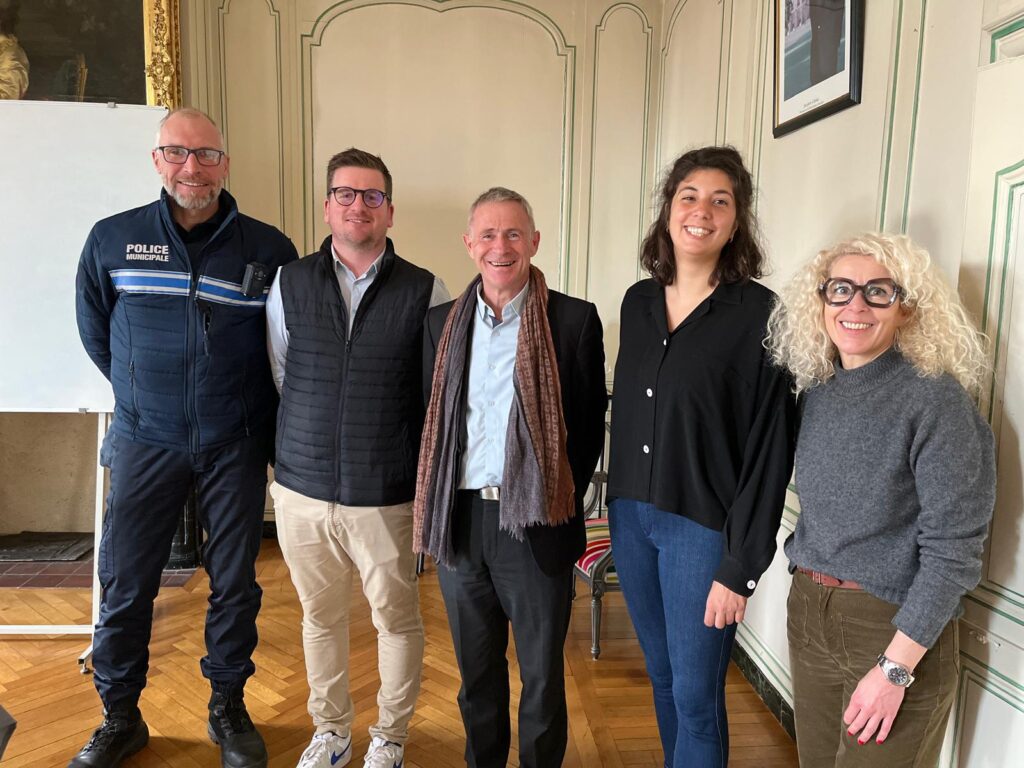

What has IcARUS taught us? Beginning the evaluation phase
Over the last three and a half years, our-multi-stakeholder consortium has been working tirelessly to co-produce, co-develop and co-deliver innovative prevention tools, in the pursuit of addressing some of the most challenging urban security concerns: safe public spaces, juvenile delinquency, radicalisation, and organised crime and trafficking. As we move toward the final stages of our four-year endeavour, we bring together all of the work of our partners in understanding the highlights and challenges of such a forward-thinking approach.

The University of York, alongside the Erasmus University Rotterdam are undertaking a comprehensive evaluation process across three key phases: training, delivery and outcomes. Taking indicators developed by Erasmus, we have begun an holistic analysis to understand how each tool has met the tailored objectives for each of the cities. We have observed training events across all cities, and obtained feedback from both trainers and trainees. We have implemented attitudinal / behavioural change surveys to understand the impact of tools on those in receipt of them, conducted observations of events and demonstrations to identify engagement levels, and administered focus groups with stakeholders and participants to assess satisfaction, understanding and sustainability, amongst a host of other measures.
Further, we are also assessing the extent to which each tool has met the objective principles of IcARUS. This involves examining how the tools have understood, incorporated and delivered in relation to communication, building trust, promoting gender-inclusivity, gaining political backing and creating tool sustainability. This not only enables us to speak to our overarching mission of the IcARUS project, to provide innovative, human-centred preventative solutions for urban security concerns, but to ensure that we can deliver lasting impact beyond the lifespan of the project.
Oversight and organisation of the evaluation work has been divided – York is responsible for Nice, Stuttgart and Riga, and Erasmus is responsible for Lisbon, Turin and Rotterdam. So too, our evaluation methods are varied and tailored to the particular tool and city. Nonetheless, our guiding principle is centred on providing space for the voices of those involved at the different stages of the tool to be heard. This is critical for several reasons. Firstly, hearing from different voices, at different stages of the process, ensures that our evaluation considers the multiplicity of experiences which have occurred throughout the tool’s lifespan. Secondly, it enables us to account for and reflect on the multi-layered challenges faced by different stakeholders involved in the process. Thirdly, it provides an evidence-base for identifying challenges and proposing solutions. Finally, it enables us to holistically reflect on the benefits and importance of multi-stakeholder solutions to urban security challenges.
As we move forward, we will turn our attention to analysing the rich datasets obtained through the efforts not only on our part but critically also by our city partners and their stakeholders. Our results will be presented towards the end of the project, where we hope to share not only important insights into the lessons learnt during IcARUS, but also a series of evidence-based recommendations which will ensure each of our tools continue their important work beyond our project end date.

Embracing Innovation for Safer Urban Living: Introducing the DUTUS Tool
In the digital age, cities worldwide are becoming smarter, weaving technology into the very fabric of urban life to enhance safety, efficiency, and quality of life. Amidst this transformation, a groundbreaking paper spearheaded by Francisco J. Castro-Toledo, CEO of IcARUS’s partner Plus Ethics, and Ana B. Gómez-Bellvís from Universidad Miguel Hernández de Elche, Spain, shines a light on the intersection of technology and urban security.
Their latest publication, stemming from the IcARUS project, addresses a crucial question: How can we ensure that the deployment of innovative technologies like drones, CCTV, and predictive algorithms in our cities respects our democratic values and civil liberties? The answer lies in the creation of the Democratic Use of Innovative Technologies for Urban Security (DUTUS) tool.
The DUTUS tool is a pioneering open-source tool designed to help local security authorities make informed decisions about technology use. It guides them through a comprehensive self-assessment process, ensuring that technological applications in urban security are legal, ethical, and socially positive. This tool stands at the intersection of technology and democracy, offering a structured methodology for evaluating the ethical, legal, and social implications of security technologies.
This development is timely, as cities continue to grow, and the integration of technology into urban infrastructure becomes increasingly complex. The DUTUS tool offers a way to navigate these complexities, ensuring that technological advancements contribute to safe, inclusive, and sustainable urban environments.
At its core, the DUTUS tool advocates for a balanced approach to urban security, promoting the idea that technological interventions should not only be effective but also align with our collective ethical standards and legal frameworks. By doing so, it paves the way for a future where cities are not just smart but also respectful of the rights and freedoms of their inhabitants.
As we move forward, the DUTUS tool serves as a beacon for urban authorities worldwide, encouraging a thoughtful and democratic use of technology in our quest for safer cities. It’s a reminder that in the smart cities of tomorrow, technology and humanity can coexist in harmony, ensuring security while upholding the values we hold dear.
Access the pre-print at the following link HERE.

Rethinking Urban Security: IcARUS at Efus’ Security, Democracy, and Cities conference
The 8th edition of Efus’ Security, Democracy & Cities Conference took place in March in Brussels, Belgium. Over three days, the conference served as a platform for discussing urban security and crime prevention challenges faced by European cities and regions. The IcARUS project played a pivotal role in this dynamic gathering.
| What is the Efus’ Security, Democracy, and Cities conference? Organised every three years, Efus’ international conference brings together hundreds of urban security stakeholders from all over Europe, as well as its international partners, to reflect on current issues and the evolving approaches to crime prevention. How do we create cities where all citizens feel free and safe ? How do we improve coexistence and reduce polarisation? How do we react to the multiple crises affecting citizens at the local level? How can cities respond to drugs and trafficking? How do we build trust between citizens and public institutions? These are some of the questions that were discussed in this edition of the conference in Brussels. The 2024 edition of the Security, Democracy & Cities conference was held by the Brussels Region (safe.brussels) in Belgium. Previous conferences were held in Nice (2021), Barcelona-Catalonia (2017), Aubervilliers-Saint Denis (2012), Saragossa (2006), Naples (2000), Paris (1991) and Montreal (1989). Learn more here! |
Highlights of IcARUS’ involvement
Representatives from the six partner cities – Lisbon, Nice, Riga, Rotterdam, Stuttgart, and Turin – took centre stage to pitch their developed tools. These tools, forged through collaborative efforts and innovative thinking, promised novel approaches to address contemporary urban security challenges.
IcARUS partners contributed their expertise to various thematic sessions, enriching the conference with diverse perspectives and insights.
- Daniel Trottier addressed Communication, transparency, fake news, and social media.
- Daniel Gatica-Perez delved into Technology and AI’s role in urban security.
Monica Diniz, Head of Prevention, Security and International Relations, City of Lisbon, presented on Cities and local police forces, Collective youth violence and urban gangs.
For more than three years, the IcARUS project has been experimenting with a design thinking methodology to involve key players in the definition, development and demonstration of tools adapted to end-user needs. This experimentation has enabled partners to identify the advantages and limitations of this methodology in the field of urban security, and to propose an updated methodology better adapted to local security challenges.
Conducted by IcARUS partners, Massimo Fattori (Erasmus University), Maud Ridoux and Violette Simeon (Makesense), the session on “How to apply an innovative approach to solve urban security challenges” offered participants the opportunity to carry out a practical exercise using the IcARUS methodology on the theme of “the challenge of recidivism” with hands-on exercises.
| What is the IcARUS methodology? The IcARUS methodology is a creative, human-centred approach to problem-solving, inspired by design thinking and the design approach. It seeks to better understand users and their unmet needs, challenge assumptions and redefine problems with experts and practitioners from different fields in a co-creative way in order to find innovative answers that are sometimes not obvious, and to strengthen local partnerships. The IcARUS methodology enables participants to reflect on how to transform the development of initiatives, services, processes and strategies by local authorities to meet their urban security challenges. |
In addition, members of the IcARUS Expert Advisory Board (EAB) and the Consultative Committee of Cities (CCC) shared their invaluable insights and experiences:
- Patrick Charlier (UNIA) focused on preventing discriminatory violence.
- Werner Vanherle (Mechelen) presented its local prevention model and showcased effective strategies implemented at the grassroots level.
The IcARUS project’s participation underscored its commitment to fostering collaboration, innovation and knowledge exchange among stakeholders invested in enhancing urban security. By showcasing practical tools, engaging in insightful discussions, and promoting its collaborative problem-solving methodology, IcARUS continues to be at the forefront of rethinking crime prevention strategies.
The IcARUS podcast series
The conference was also the occasion to record three podcasts with the IcARUS partners, offering in-depth insights into pressing urban security issues and innovative solutions.
Learning from the Past: 30 Years of Crime Prevention and Urban Security
Joined by André Vervooren, Director, City of Rotterdam and Adam Crawford, Professor of Criminology & Criminal Justice at the University of York, this podcast explored the evolution of crime over the past three decades. The conversation emphasised the need to rethink security strategies in light of changing societal contexts and highlighted the IcARUS project’s comprehensive review of urban security developments, encapsulating key trends, lessons learned and knowledge gaps.
Key Learnings with regards to Innovation
Featuring Monica Diniz, Head of Prevention, Security, and International Relations at the City of Lisbon, and Andrew Wootton, Professor of Human-Centred Design Innovation at the University of Salford, this podcast delved into the innovative approaches promoted by the IcARUS project. The conversation highlighted the crucial role of innovation, not just in terms of technology but also in social adaptations, to address contemporary urban security challenges effectively. This was illustrated by the Jovem Design Lisboa (JDL), a design-oriented approach to engage young people in community safety, developed in the framework of IcARUS.
Advancing Urban Security with the support of Technology
Staņislavs Šeiko from the Riga Municipal Police and Ravinithesh Annapureddy from the Idiap Research Institute led a discussion on leveraging technology to enhance urban security. They explored technological solutions and citizen engagement in co-creating security solutions, in particular the Par drošu Rīgu! (For a safe Riga) tool which provides an evidence-based approach to modifying and adapting district/neighbourhood policing tactics by analysing quantitative and qualitative data together.
Additional podcasts on the prevention of radicalisation leading to violent extremism, organised crime and more will be released in the coming months! Stay tuned for their publication!
For more details on the conference, please visit Efus’ website.

The contribution of the IcARUS project in re-thinking Urban Security in Europe
The IcARUS Project will dynamically participate in the 30th International Conference of Europeanists organised by the Council for European Studies in Lyon France on Radical Europe: Violence, Emancipation, and Reaction in July 2024.
This is a great opportunity for researchers to come together, as the IcARUS project aims to improve urban security in Europe by developing innovative tools for local authorities and practitioners to address four security challenges: radicalisation, juvenile delinquency, trafficking and organised crime, and public spaces issues.
To that end, a team of five IcARUS partners, EFUS, KEMEA, Riga, Erasmus University, and Stuttgart will participate in a dedicated panel where they will be discussing the contribution of IcARUS in addressing radicalisation and enhancing urban security at large.
Emphasis shall be placed on the use of the Design Thinking Methodology – which is central to the project – and the stages it involves: co-creation, testing, and validation of the produced tools with end-users and pertinent stakeholders.
IcARUS partners will raise awareness and foster dialogue on community policing issues and on cultivating stakeholder engagement. Pertinent to radicalisation, IcARUS panelists will provide insights on how to promote the participation and involvement of people in democratic processes, focusing on young Europeans who are most exposed to experiencing discrimination combined with low participation rates in sociopolitical life.
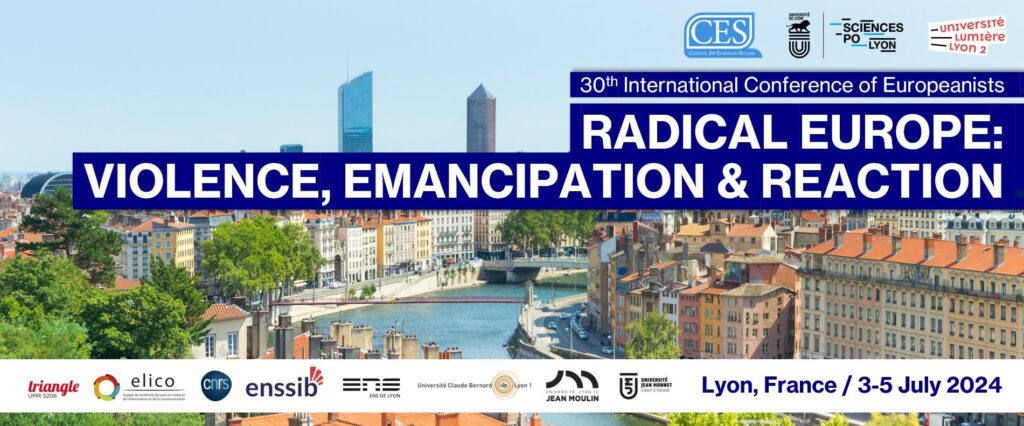
Stay tuned for the results of this very interesting conference!

Training local practitioners in using the IcARUS tools
Between November 2023 and January 2024, the project conducted a series of sessions to train local practitioners – mainly municipal staff and local police officers – on using the six IcARUS tools.
The objective was to equip them with the necessary skills and knowledge on how to use the IcARUS tools and its various components. These sessions were designed by the IcARUS partners, i.e., Efus, the University of York, IDIAP Research Institute, Camino and the University of Salford, in coordination with the IcARUS cities.
Gender inclusiveness
Each training included a session on gender-inclusiveness conducted by Dr Natalie Higham-James, Research Fellow at the School of Law of the University of York.
The objective was to demonstrate the value and importance of adopting an inclusive approach when delivering the tool, ensuring that the city is able to engage with and respond to the needs of as many different people (and their experiences) as possible.
Five gender-inclusive principles
Dr Higham-James’ intervention focused on three aspects: to understand what a gender-inclusive approach looks like; to apply the five gender-inclusive principles to our work; and, to feel confident in doing so.
Whilst sessions were tailored to each of the city’s tools, users, needs and urban security concerns, five principles were applied across all: Representation, Inclusion, Empowerment, Responsiveness and Breaking Down Stereotypes. These principles provided a framework for cities to implement inclusive practices, exploring the key questions they should ask of themselves and their tools, and providing tactics for navigating delivery and any challenges along the way. Critically, the sessions demonstrated how ensuring inclusive approaches is not only a legal, moral and social responsibility, but also a vital key to successful tool deployment for the benefit of all citizens.
The project is now organising several activities to see on the ground how the IcARUS cities are demonstrating their tools. Stay tuned!
The six partner cities’ tools
- Riga (Latvia) is examining how to better match citizens’ feelings and experiences of insecurity with local police interventions.
- Rotterdam (Netherlands) is looking at the Spaanse Polder Café, a collaborative approach involving businesses established in the eponymous industrial park with the aim of countering organised crime.
- Nice (France) is testing its Demandez Angela (Ask for Angela) scheme to assist victims of harassment and insecurity in public spaces.
- Lisbon (Portugal) is launching a 12-week programme to develop young people’s feelings of self-worth and self-confidence, providing them with practical life skills and improving their relationships with police and their local community.
- Stuttgart (Germany) seeks to build the resilience of local young residents to radicalisation.
- Turin (Italy) is looking at a collaborative decision-making approach for producing interventions that tackle youth delinquency and enable evidence-based interventions.

News Update: Exploring Urban Safety through IcARUS Project
Check out the latest research on local crime prevention policies and quality of life in the paper “Local policies of crime prevention and quality of life” by Zarafonitou Ch., Karagiannidis Ch., Kontopoulou E. The study, enriched from its presentation at the “PUBLIC ADMINISTRATION AND THE ENVIRONMENT” conference, emphasizes the importance of decentralized prevention policies. Notably, the IcARUS Project is referenced, highlighting the project’s goals, objectives, and consortium. This research underscores the significance of community involvement and collaboration for urban safety, both internationally and in the European context.
Read the full paper here (available in Greek). Additional details on the research are available here
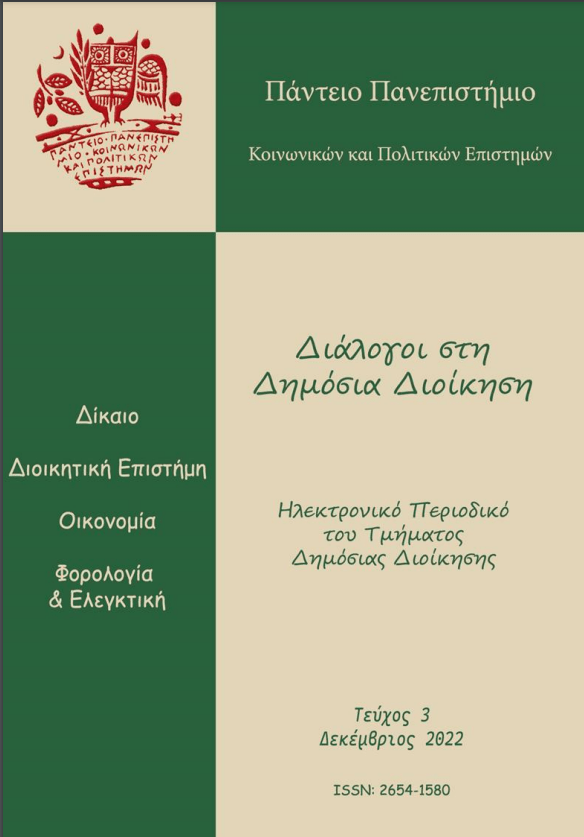

Exhibition on “Research at Panteion” in the framework of Freshmen Reception Week at Panteion University
On Wednesday, 11 October 2023, in the context of the Freshmen Reception Week, Panteion University organized a very interesting exhibition on “Research at Panteion” and the Laboratory of Urban Criminology of Panteion University -with its rich research work- actively participated. Representatives and collaborators of the Laboratory were present to provide information material and answer questions to those who visited the stand, while at the same time video material was shown on some of the research projects that were recently completed or were ongoing.
The Rector of Panteion University, Prof. Christina Koulouri and the Vice Rector of Finance Prof. Christos Papatheodorou, visited the stand and showed particular in interest in the Laboratory’s actions. The Laboratory’s team presented thoroughly the research projects that have been completed so far by the Laboratory and those that are still ongoing.
In this context the Laboratory team presented IcARUS Project (the objectives of the project, the methodology, the consortium and the participating cities, the ultimate goals and the main results so far). The team also gave IcARUS information material and pens to those who visited the stand.
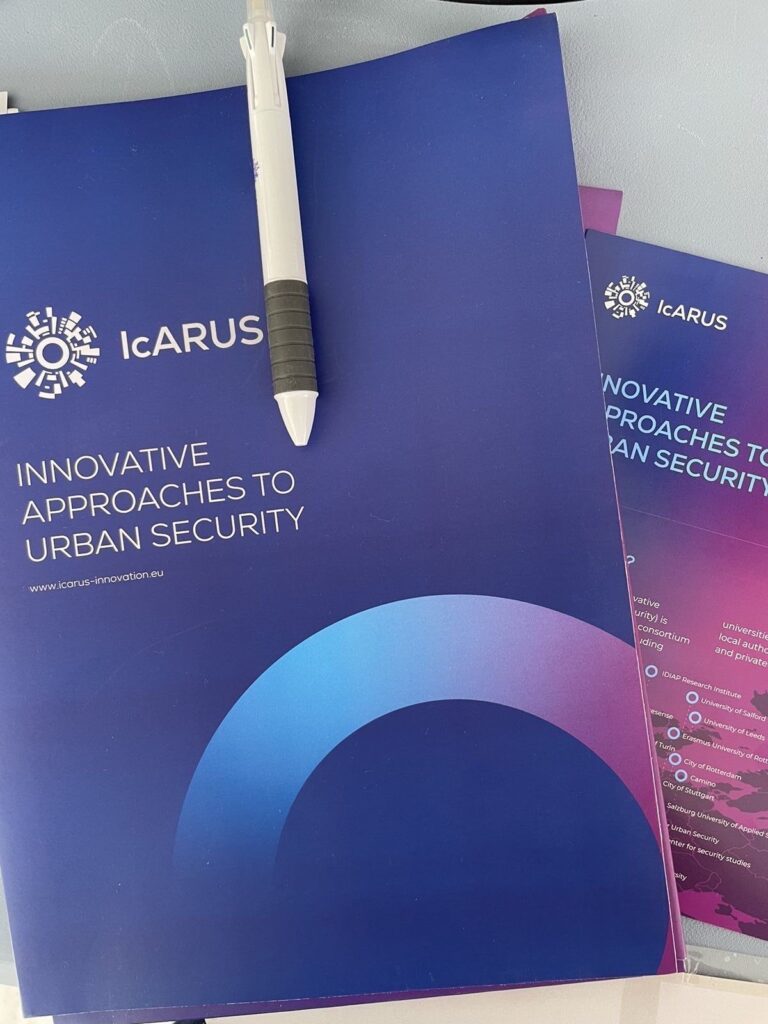
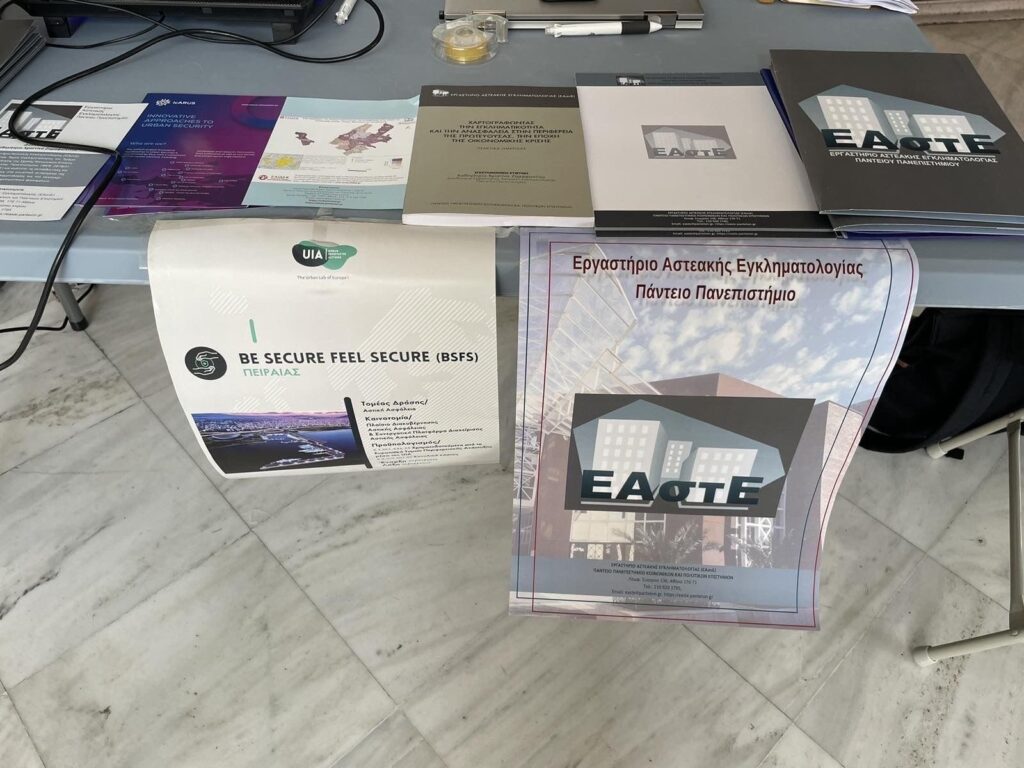
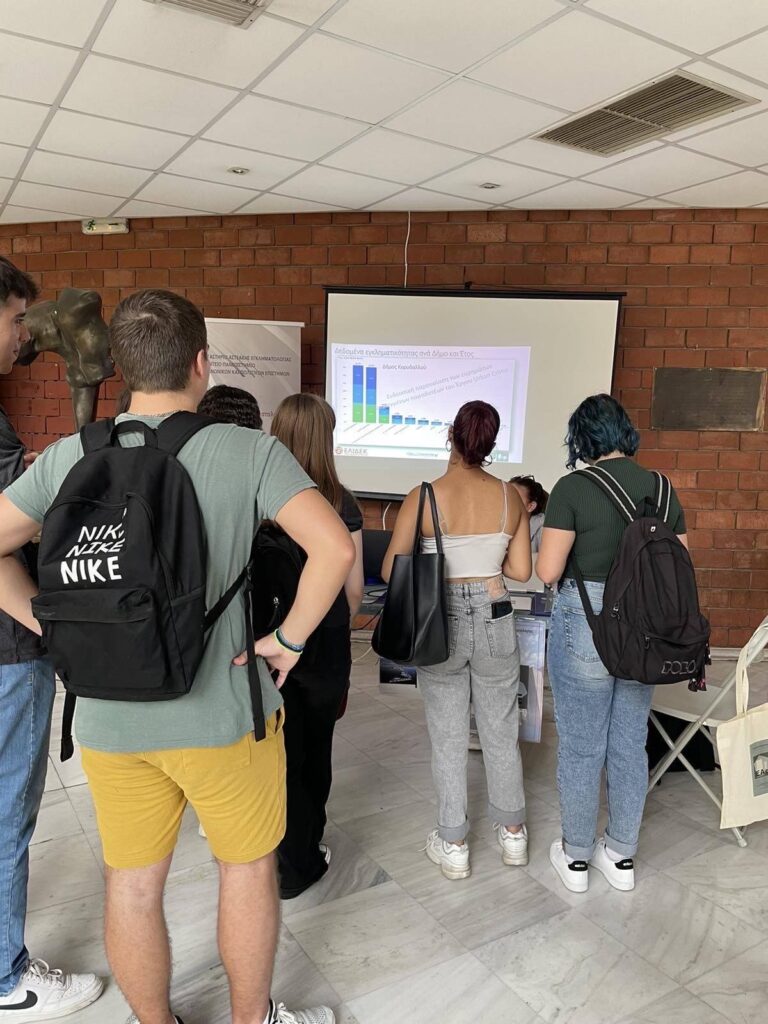

subscribe to be the first to receive icarus news!
Know what we've been up to and the latest on the European urban security frame.








